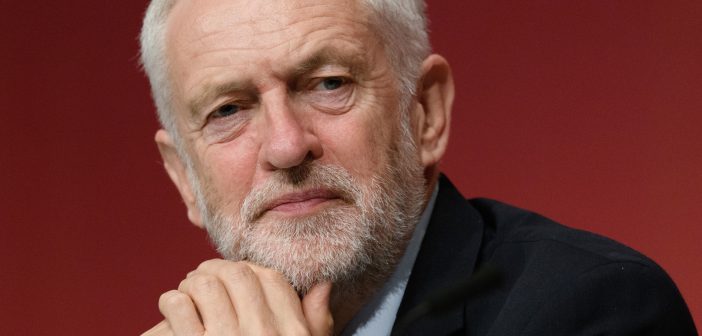Voting will close today in the latest election which will help determine the future of the Labour party.
Elections for the party’s National Executive Committee (NEC) – the body which runs the party and sets its rules – will close at noon.
Although little noticed since the turn of the year amid the trials of Theresa May’s latest botched reshuffle and the NHS winter crisis, they are the latest staging post in the Labour civil war.
Three new positions representing the party members are up for grabs. The jobs were created in an expansion of the NEC at the urging of the leadership.
They said that it was important the party’s new 600,000 strong membership had more representation. They also knew that those elected to the new positions would almost certainly be favourably disposed to Jeremy Corbyn.
Hitherto control of the NEC has largely eluded the leadership with the composition being finely balanced between left and right.
Technically, with Kezia Dugdale’s shock resignation as Scottish Labour leader last year, the left had a small advantage but assuming they win all three new seats (and most think they will) then that majority will become well entrenched.
And that worries plenty of Labour MPs. They know that the long-term aim of the left is to wrest more control from members of parliament to members of the Labour party.
At the forefront of that movement is Jon Lansman, perennial “Labour Lefty” (as he calls himself) and activist, head of the pro-Jeremy Corbyn pressure group Momentum and now first-time candidate for the NEC.
As he told me, he wants to see power transferred to the membership: “I think members need to have a greater say and need to be seen to have a greater say because firstly they need to feel ownership of it, but we also have 600,000 members who know their communities, fellow workers and their workplaces.”
In practice this could mean lowering once again the number of MPs required to nominate someone for the leadership (or allowing party members, trade unions or affiliated Labour groups to do so as well), handing power of manifesto policy setting to the membership (possibly as Lansman tells me, through “the power of digital democracy”) and mandatory reselection of MPs (MPs having to be readopted as candidates by their local parties before every general election).
There’s no doubt Lansman and his fellow left-wingers have deeply held beliefs on democratisation of the party. There’s also little doubt that they also believe such measures would empower their own wing of the party and embed the Corbyn legacy and permanently transform Labour. With a larger majority on the NEC this project can begin with gusto.
There has been some opposition, including from longstanding activist Eddie Izzard who hopes to wrest one of the places from the left. But most observers think it will be a clean sweep.
There is, however, one solitary fleck of grit in the Corbyn oyster. Another slow rumbling development in Labour politics could derail this new leftist-hegemony.
There is a possibility that Len McCLuskey, the close Corbyn ally and General Secretary of Unite (Labour’s biggest donor and Britain’s biggest trade union) might have his election as the head of his union declared void after alleged voting irregularities.
If that happened it would throw Unite into turmoil and he may potentially have to hand over to Gerard Coyne, no friend of Corbyn. If that happened Unite’s seats on the NEC would be up for grabs and the left’s majority might in the medium term disappear. A Labour source tells me the Unite decision might come very soon.
It’s just a reminder that just when one faction seems unassailable the political gods have a peculiar way of redressing the balance. In the 1990s and 2000s it looked as if the Labour left was moribund, never to return. Now they seem invincible. But invincibility can be fleeting. Perhaps then all the more reason to move quickly.
If the Corbynistas do win (we’ll know the result on Monday) expect more headlines on changes to party rules – and sooner rather than later.

